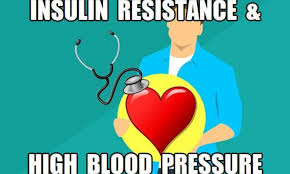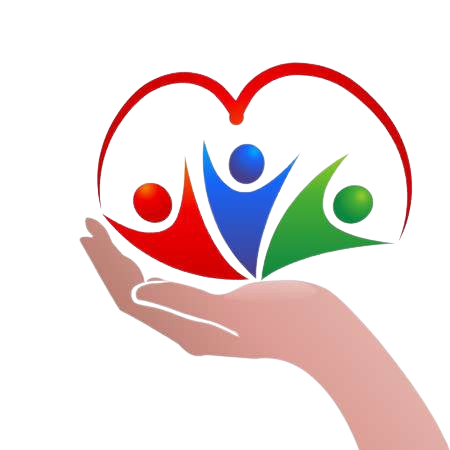Although research has explored the link between insulin resistance and high blood pressure (hypertension), the exact nature of their relationship remains unclear.

Insulin resistance and hypertension often appear together and share many common causes and risk factors. Because of this, doctors may suggest similar strategies to manage both conditions—such as improving diet, increasing physical activity, and achieving a healthy weight.
In some cases, medications may also be necessary to manage blood pressure or treat complications associated with insulin resistance.
This article explores how insulin resistance and high blood pressure may be connected and what it means for your health.
Does Insulin Resistance Lead to High Blood Pressure?
While there’s a strong association between insulin resistance and hypertension, the direct cause-and-effect relationship is still being studied. Researchers suspect that insulin resistance may disrupt several systems in the body—including hormonal, nervous, inflammatory, and stress-response systems—that play a role in raising blood pressure.
Insulin is a hormone that helps regulate blood sugar by assisting the body in breaking down glucose. When the body becomes resistant to insulin, it needs to produce more of it to maintain normal blood sugar levels.
What Causes Insulin Resistance?
Several factors can contribute to the development of insulin resistance, including:
-
Aging
-
Family history
-
Poor dietary habits
-
Physical inactivity
-
Being overweight or obese
-
High cholesterol
-
Heart disease
-
Certain hormonal disorders
What Causes High Blood Pressure?
Hypertension happens when the force of blood against your artery walls is consistently too high, which can lead to long-term damage and serious health issues.
Many of the same risk factors linked to insulin resistance also apply to hypertension, such as:
-
Genetics
-
Age
-
An unhealthy diet
-
Excessive intake of caffeine or alcohol
-
Smoking
-
Lack of physical activity
-
Poor sleep
-
Chronic stress
What Can Happen If You Have Both Conditions?
Having both insulin resistance and high blood pressure can increase your risk of developing more serious health conditions, such as:
-
Glucose intolerance
-
Type 2 diabetes
-
Cardiovascular disease
-
Endocrine system disorders
Interestingly, elevated blood pressure may occur in people with insulin resistance even before signs of diabetes appear. Researchers believe this may be because insulin resistance impacts blood vessels and circulation before affecting other systems in the body.
Some research also indicates that women might be more vulnerable to developing high blood pressure as a result of insulin resistance than men.
In one study involving 4,717 participants without other health issues, insulin resistance was linked to a 51% higher risk of developing pre-hypertension and a 150% increased risk of full hypertension. Notably, these effects were seen even in individuals with a healthy body mass index (BMI).
Insulin Resistance and Hypertension During Pregnancy
Both conditions can also occur during pregnancy and require close monitoring.
Pregnancy can naturally make the body less sensitive to insulin, leading to gestational diabetes in some women. At the same time, high blood pressure during pregnancy can increase the risk of complications such as early delivery, low birth weight, and organ damage.
Doctors may suggest both lifestyle changes and medications to help manage these conditions safely during pregnancy.
How Are Insulin Resistance and High Blood Pressure Treated Together?
In many cases, both conditions can be managed through similar lifestyle improvements, such as:
-
Increasing physical activity
-
Achieving and maintaining a healthy weight
-
Eating a balanced diet that is low in salt and added sugars
Certain blood pressure medications may also help improve insulin sensitivity. These include:
-
Alpha blockers
-
ACE inhibitors (angiotensin-converting enzyme inhibitors)
-
Angiotensin receptor blockers (ARBs)
-
Calcium channel blockers
Doctors may also prescribe medications typically used for managing diabetes. Metformin, for example, is sometimes used to improve insulin sensitivity even in people who don’t have diabetes.
What’s the Best Diet for Managing Both Conditions?
Several diets have been shown to support healthy blood pressure and improve how your body responds to insulin, including:
-
DASH (Dietary Approaches to Stop Hypertension) diet
-
Low-carb, high-fat diet
-
Mediterranean diet
-
High-fiber, low glycemic index diets
The DASH diet, recommended by the National Heart, Lung, and Blood Institute, includes:
-
Fruits and vegetables
-
Whole grains
-
Lean protein (such as fish and poultry)
-
Nuts, seeds, and legumes
-
Healthy oils (like olive or vegetable oils)
It also encourages limiting:
-
High-sodium foods
-
Sugary items and beverages
-
Fatty meats and full-fat dairy products
Other dietary strategies include mindful eating, eating more slowly, and prioritizing a larger, nutrient-rich breakfast—especially meals that are low on the glycemic index.
Low-GI foods include whole grains, legumes, low-fat dairy, and many fruits and vegetables.
Final Thoughts
If you’re living with both insulin resistance and high blood pressure, it’s important to work with your doctor to manage these conditions effectively. Early treatment and healthy lifestyle habits can help prevent more serious issues like heart disease and type 2 diabetes.
Although there’s no medication specifically designed to treat insulin resistance, many lifestyle strategies and medications used for high blood pressure can help improve both conditions. A focus on exercise, balanced nutrition, and weight management can go a long way in supporting your overall health.

